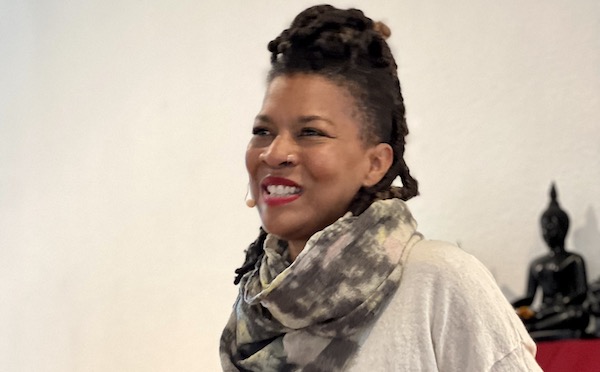
The Parami (perfection or attainment) of truthfulness might be one of the more complex and rich of the collection of the 10 Paramis. Speech is an incredibly powerful tool that can bring peace and harmony to a fraught experience, or can be weaponized to be a corrosive force.
Speech and perception are also influenced by how we were socialized within our gender, race, and social location: how we speak, what we say, how we say it, who we say it to… or don’t. It collides with our behavior, our perception and our understanding. It impacts who we take care of, and who we abandon. And how we sometimes don’t give the full story, because we can’t quite find the way to be direct and honest in a way that doesn’t harm.
So, to practice this Parami with skill and wisdom takes the accumulated efforts of all the paramis that come before it.
For example, generosity and morality (dana + sila) arouse the heart and cultivate empathy; they teach us that we live in a shared world. But that doesn’t mean that we all have the same perceptions or views, which is why patience (khanti) and renunciation (nekkhama) are important to protect us from speaking out based on impulse. We need wisdom (pañña) which gives us discernment and clarity – our ability to know when we are tangled up in our fear, confusion, blame, doubt, and to see what’s on the other side. And we need energy (viriya) to ensure we’re not charging forward with an emotional response or leaning back in defeat or a loss of heart.
How does that all play out in practice? To cultivate truthfulness, consider checking in with the four traditional tenets of wrong speech, to see what we’re working with:
False Speech: This can look like stretching the truth to boost our egos, being economical in our speech to not harm others, or lying with our silence.
Abusive Speech: This can look like calling folks out, instead of calling them in, using words or language that are meant to hurt. There is an internal oppression that happens here, and it tends to make us smaller.
Idle Chatter: This might manifest from being uncomfortable with silence. What’s underneath that? What do we think will happen in that silence?
Divisive Speech: This is when our speech is malicious and divisive. Its intention is to divide folks into those who deserve basic human rights, and those who do not. Personal gain is the underlying end game.
Dear Ones, we’re not just truthful for the sake of truthfulness – we’re truthful because it’s in service to another. Truthfulness protects and nourishes, it saves lives, and it reminds us that we belong to each other.
Leslie Booker
Guiding Teacher
New York Insight


